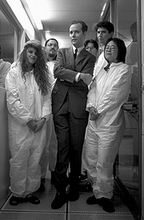
So, here I am. At L’abri. It was a good, easy trip over but I am pretty exhausted.
On the plane over, my mind was full, reeling as I fell in and out of that restless plane sleep. During the past few weeks, I have had several enlightening, disturbing, challenging, hard, beautiful conversations with friends (both new and old) about some of the most difficult questions concerning faith. The timing of these conversations is quite striking--although these conversations about struggles, doubts, belief, etc. have contained themes that have been near to my recent spiritual life, have reflected the language of my own recent soul, I feel as if my own questions have been clarified, my appetite for a deeper understanding of the reality of mystery has been whetted.
Because of this, I could not help but read Pascal’s Pensees on the plane--I felt madly driven to do it. Blaise Pascal and Simone Weil have been left some of the deepest imprints on my heart and mind over the last few months. And it keeps happening, especially with Pascal.
Please read this amazing section from Pensees:
“We never keep to the present. We recall the past; we anticipate the future as if we found it too slow in coming and were trying to hurry it up, or we recall the past as if to stay its too rapid flight. We are so unwise that we wander about in times that do not belong to us, and do not think of the only one that does, so vain that we dream of times that are not and blindly flee the only one that is.
The fact is that the present usually hurts. We thrust it out of sight because it distresses us, and if we find it enjoyable, we are sorry to see it slip away. We try to give it the support of the future, and think how we are going to arrange things over which have no control for a time we can never be sure of reaching.
Let each of us examine his thoughts; he will find them wholly concerned with the past or the future. We almost never think of the present, and if we do think of it, it is only to see what light it throws on our plans for the future. The present is never our end. The past and present are our means, the future alone our end.
Thus we never actually live, but hope to live, and since we are always planning how to be happy, it is inevitable that we should never be so.”After reading this beautiful passage, I remembered one of my favorite L’abri lectures entitled
“The Sacrament of the Present Moment” by Andrew Fellows. Andrew argues along the same lines as Pascal, but continually makes the point that we meet God only in the present. How does this relate to Pascal‘s comment about the pain of the present? It is so hard, so frightening, to slow down--to wait, to believe in the sacred nature of the present moment. We are always running forwards and backwards--is this running into the future or back into the past another way to avoid God, to be distracted, to avoid facing the painful light of reality? Why? There is a lot I could say about this but this is already crazily long. Would love to hear any of your comments.
On a lighter note, here are two items of interest from my return to England:
1) Victoria Station now has its own Krispy Kreme.
2) I am sharing a little Victorian schoolhouse at L’abri with a Brazilian family. One of the Brazilians gave a lecture on Kierkegaard last night--which I sadly missed.
That’s all for now!









































